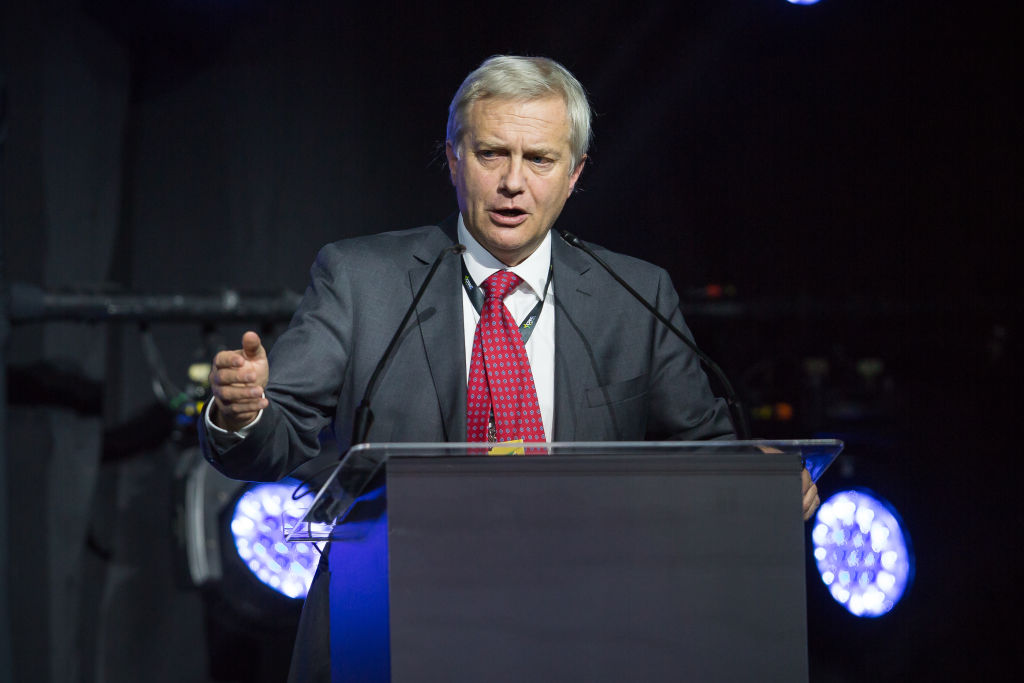SANTIAGO—With eight months left in office for President Gabriel Boric’s left-wing government, polls indicate that Chile is shifting to the right. Conservative presidential candidate José Antonio Kast is in the lead ahead of the first-round election on November 16, surpassing the other two right-wing hopefuls, Evelyn Matthei and Johannes Kaiser. Polls also show that Kast is favored to win an eventual runoff on December 14.
This year’s election will be Kast’s third, having lost to former President Sebastián Piñera in the first round of the 2017 elections and to Boric in the 2021 runoff. A former congressman who left the traditional right-wing coalition to found the more conservative Republican Party in 2019, Kast seems well-positioned to capitalize on the key issues defining this year’s election: safety, immigration and economic stagnation. “We’re living in a state of alert when it comes to getting in and out of our homes,” he said earlier this month, vowing to “close the border” and “cut off the flow of migrants.”
Polling just behind Kast is Communist Party candidate Jeannette Jara, a former labor minister in the Boric administration who won the June 29 center-left primary with an unexpected 60% of the vote. The contrast between Kast’s and Jara’s candidacies has intensified pre-existing polarization, increasing Kast’s chances in a second round.
While his hardline stances may have alienated voters before, Kast’s positions are resonating today among more Chileans who are increasingly concerned about crime and migration. These changes in public opinion, and a shifting electoral landscape, are setting Kast up for his strongest election bid yet.
A shakeup in the polls
Earlier this year, Kast was polling second to Matthei, followed by the libertarian Kaiser and the traditional center-left politician Carolina Tohá, who was polling fourth. However, Jara’s primary win over Tohá has shaken up the polls, which now show Kast and Jara in the lead, with Matthei falling to third place.
Matthei, who has served as a congresswoman, senator, minister of labor and, most recently, mayor of the Providencia district in Santiago, lost the momentum that a few months ago had positioned her at the top of several polls. “She was concerned about elite issues, such as giving Chile more governability or having the best teams on her campaign, instead of worrying about popular issues,” Claudio Fuentes, director of the Social Sciences Research Institute at Universidad Diego Portales, told AQ.
Kaiser was a novel candidate who peaked in the Cadem poll at 15% in April. His disruptive proposals on gun rights, taxes, personal freedoms and anti-globalism had attracted voters’ attention. However, this rise was followed by a swift fall in polls, as right-wing voters saw a greater chance of Kast winning the election.
Given that multiple right-wing candidates are running in the first round, the vote is likely to go to a runoff between Kast and Jara. Recent polling predicts Kast would win, but also shows that Jara has gained traction since the primary.
“Jara’s rapid rise caused a mirror effect on the right, exacerbating political polarization,” Gonzalo Müller, director of the Public Policy Center at Universidad del Desarrollo in Santiago, told AQ.
Jara gained popularity as labor minister by getting Congress to pass a 40-hour workweek law, a minimum wage increase, and a pension reform. However, as a former Cabinet member, Jara may be constrained in her criticism of Boric, whose approval ratings have declined from 50% at the start of his term to around 30% since June 2023.
Crime and immigration
Security is a key factor affecting Boric’s popularity, as Chileans feel crime has increased. “There’s a great sense of insecurity, which is an advantage for Kast,” veteran political reporter Cristián Bofill, who runs the news website Ex-Ante, told AQ.
The increase in drug trafficking, kidnappings and homicides in recent years has alarmed Chileans, who used to see these as problems of other Latin American countries, not their own. In 2022, Chile’s homicide rate peaked at 6.7 per 100,000 people, decreasing to 6.0 in 2024. But this rate is still higher than that of a decade ago.
In July, Kast announced a prison reform proposal that includes solitary confinement for criminal leaders and the construction of maximum-security prisons for “highly dangerous criminals and foreigners.” He has also proposed tougher penalties for gang members. For her part, Jara has vowed to make security a priority, and has proposed strengthening the police, increasing prison capacity or building new prisons. To combat organized crime, she has highlighted the need to lift bank secrecy protections to follow the money.
Some blame immigration as a source of organized crime, amid a 47% increase in Chile’s foreign-born population since 2018. Tren de Aragua is often cited in press reports about organized crime, and last week police arrested one of the gang’s leaders who was linked to the murder of former Venezuelan military officer Ronald Ojeda in Chile in February 2024.
While both candidates have pledged to protect borders against illicit trafficking, Kast has promised to close borders and construct walls, ditches, and perimeter fences. Jara has proposed a regularization process for immigrants and stated that when courts determine that migrants have come to Chile to commit crimes, they would be sent back to their countries.
Economic concerns
Some 37% of Chileans point to rising immigration as the main reason for the country’s 8.9% unemployment rate, which, along with inflation, is another key source of concern among voters. A July report from the National Statistics Institute noted that the country added only 141 jobs over the past year. According to the Central Bank, the economy is expected to grow up to 2.75% this year and up to 2.5% in 2026, half the growth seen 20 years ago.
Kast’s economic proposal, called “The Takeoff,” includes deregulation, tax reduction and adjustment of public spending to stimulate the economy. He has proposed a $6 billion spending cut over 18 months.
Jara has changed her messaging on the economy since the primary, and today she’s leaning toward the center, stating that Chile is an open economy and describing an earlier proposal to nationalize copper as a mistake. In contrast to Kast, she has stated that she would not cut taxes on large corporations.
Since Jara won her coalition’s primary, she has made changes to her team and changes in her proposals as part of a shift toward the center that is focused on issues traditionally dominated by Kast, such as safety, the economy and immigration.
For the past two months, Kast has conducted himself like a frontrunner, avoiding one-on-one interviews with the local or foreign press. “He believes he should take fewer risks,” said Müller. The latest trends in this election suggest he may be right.







